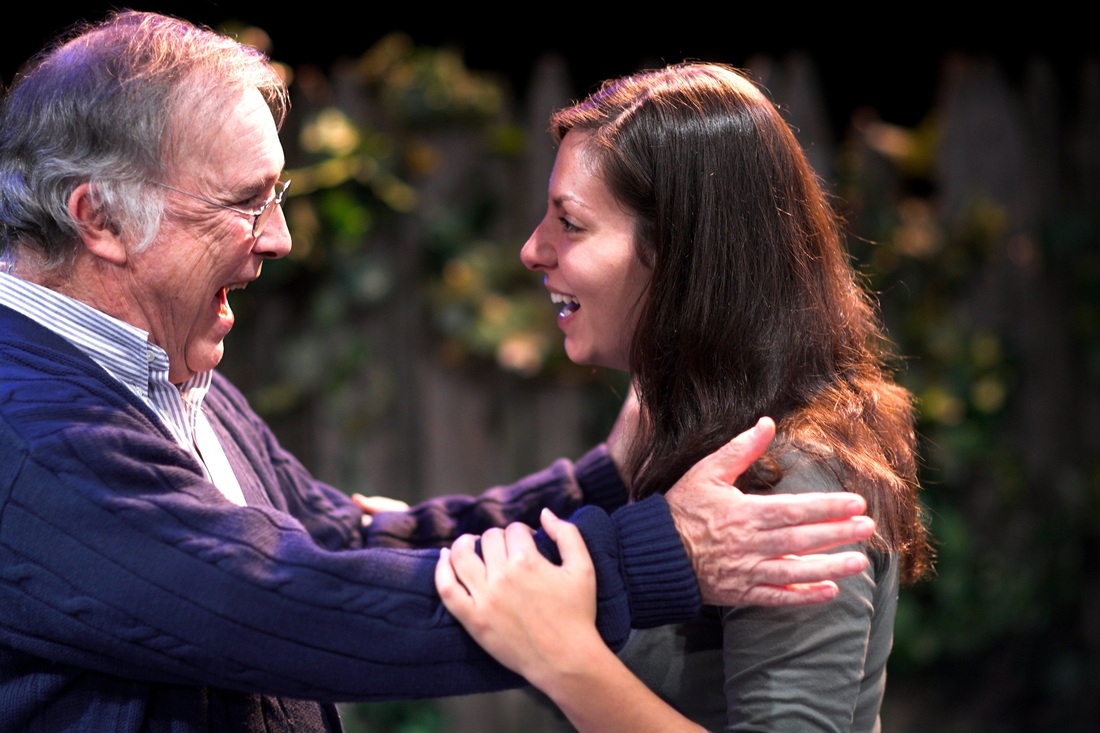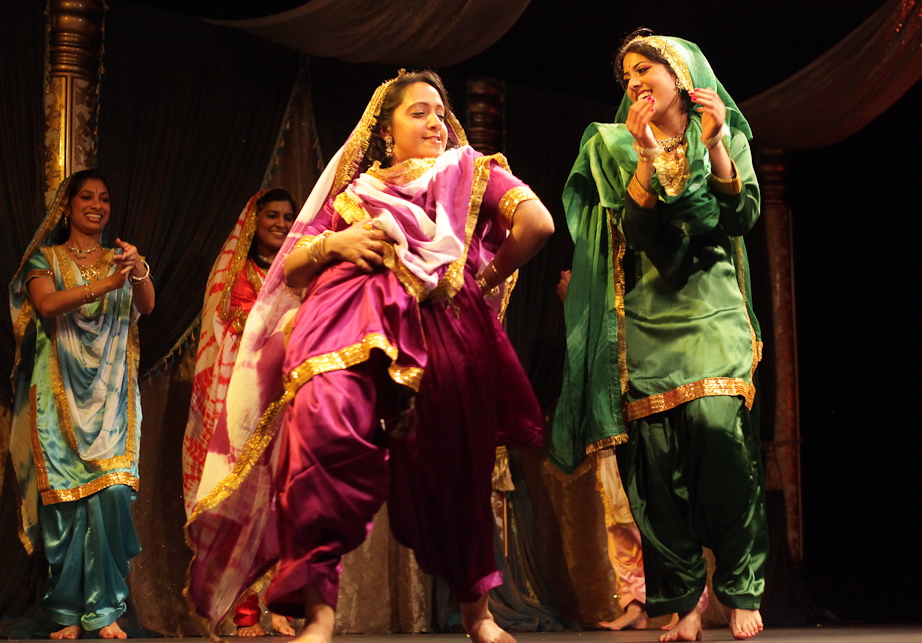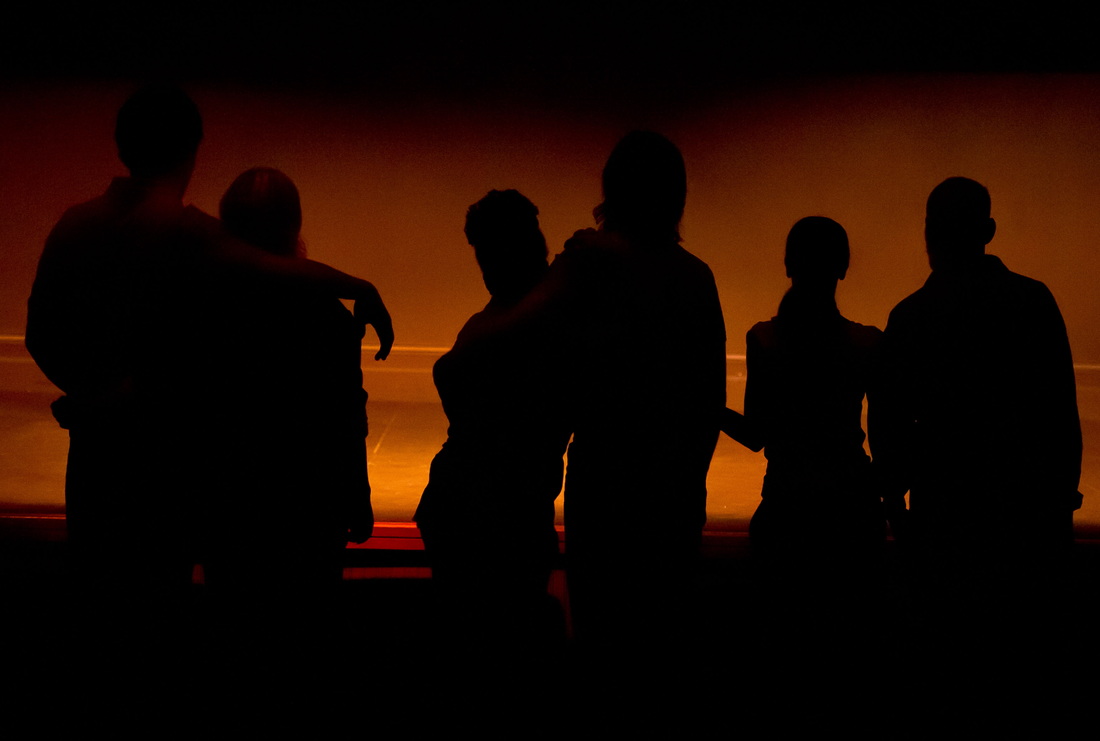|
Jacqueline Lawton: What was the first play that you ever directed? What did you learn from that experience that remains with you today?
Ali Miller: I directed Inherit the Wind in high school. I didn’t pick the play, but I fell in love with it as we rehearsed. I was probably lucky to have that experience at a young age. It’s reassuring to know that not all of my projects have to begin like love at first sight. If I feel challenged by a project, am genuinely interested in the questions it asks and believe in the story’s social worth, that is enough to create a meaningful investment for me. JL: Why did you decide to get into theatre? Was there someone or a particular show that inspired you? AM: I grew up creating little plays, making my poor sister practice our Newsies medley interminably. I was always drawn to it. My parents have a lot to do with that. I am very lucky: they took me to see theatre as a child and then--when I wanted to make theatre myself--I had their support and encouragement. JL: What kind of work do you do to pay the bills? How do you balance this work with your work as a director? AM: I do have another job that I really care about. I don’t find it very challenging to balance the two careers. For me, it’s easier than juggling four or five things like I did when I was a freelancer. I am grateful to have the space and time to make theatre without the pressure that it must support me financially. I can just work on what I like. JL: In DC, we have the Capital Fringe Festival, the Intersections Festival, the Source Festival, the Kennedy Center's Page-to-Stage Festival, the Black Theater Festival, and the Hip Hop Theatre Festival. We also have the Mead Lab at Flashpoint Theater Lab Program. Have you participated in any of these? If so, can you speak about your experience? AM: I’ve participated in Capital Fringe twice and Page-to-Stage a number of times. Fringe can be a good fit for new producers; the organizers outline a producer’s course of action pretty clearly as I recall and they also lighten the load by securing your venue and administering ticket sales. The festival has a committed audience that seems to talk to each other a lot, but producers need to be savvy marketers to really sell tickets. I am currently the managing director of American Ensemble Theater and the show we took to Fringe in 2010 did very, very well. It was an excellent production, but Martin Blank, our artistic director, is also a tireless marketer. Another good take-away for me: the festival organizers are part of your audience; you are marketing your show to them, too. I imagine that having your show selected for the Fringe Preview or for Fall Fringe would make a significant difference to your bottom line. JL: How many plays have you directed in the DC area? How many of them were written by women? By playwrights of color? How conscious are you selecting plays by women or people of color when deciding your season? AM: I have directed fourteen plays in the DC area; women wrote ten of those and I include my own devised work in that number. It’s harder to answer the last two questions because I am more often picking ensemble members/actors/collaborators than selecting finished scripts. I pick collaborators with a variety of experiences and I am intentional about gender and race. That intentionality has to do with my values and it also happens to work out better that way: having a variety of experiences in the room enriches the final product. JL: How do you feel the DC theatre community has addressed the issues of race and gender parity? How has this particular issue impacted you and your ability to work? AM: Well, I don’t see everything, but there are companies that seem to consider race and gender parity. I think we are doing better on gender than we are on race. I often read a script or see a show and have some questions about race and culture. Why is this character Latino and this character Caucasian? This play is set in Sri Lanka; why do all of the actors seem to be white? Would I have the same reaction to an ancient Greek play in which the actors weren’t Greek? It can be hard to ask those questions as part of the process, but we are all growing and learning I think. As for gender, I have had the experience of older male colleagues saying inappropriate things to me. Perhaps those instances would have been more rare if we’d achieved gender parity. I know I deserved to be in the rehearsal room because of my work—I didn’t wonder too much about that—but I did have to navigate these professional relationships cautiously when I would have liked to focus my energy exclusively on the work. JL: If you could direct at any theatre in DC, which would it be and why? AM: I really appreciate the many theatres in town that make their tickets affordable and that engage the local community in some way. Woolly Mammoth Theatre Company and Arena Stage have some good programs in those regards. I would have loved to be part of Arena’s Living Stage program. If Cornerstone in L.A. were local, I’d be asking them for a job. JL: DC audiences are… AM: still mysterious to me, but seem smart. I can’t remember the last time I saw something that was both well attended and awful. I do think the audience is a mirror of the collaborators. If you have a multi-generational, racially diverse cast and crew, you are more likely to have an audience diverse in those respects. I think folks show up more than you might expect when their story is a part of what’s onstage. JL: DC actors and designers are… AM: as talented as they come. I’ve only ever worked with local actors and designers and have been blown away by the artistry we have in town. I don’t think too many people would dispute that you can see a top-notch show in DC, but I think there’s still a sense that serious artists move to New York. I’ve heard about local actors getting a Manhattan mailing address for their headshots because they want to be more attractive to the large theatres in town—I suppose many principal equity roles are cast out of New York. But it’s also true that DC audiences embrace their homegrown stars in a really special way. How many times have I seen a show just because Nancy Robinette or Sarah Marshall was in it? If theatres and audiences are committed to local talent, the next generation of talent is more likely to stay local. JL: DC playwrights are… AM: again, SO talented. I hope we are giving them a good home here so they will want to stay, too. A couple years ago, one of my favorite local playwrights moved to New York City, that playwright-stealer! At least we have some theatres that specifically focus on developing new work, which I believe is rare. JL: DC critics are… AM: not reading this I hope. Just kidding. A lot of reviewers seem like genuine theatre lovers to me. That’s great. I am glad DC Theatre Scene is around; they see so much. Also, DC critics are…now on Twitter?! In the old days, you could get the odd heated back-and-forth in the newspaper between a critic and a disgruntled artist, but now there is this access, which is also quite instantaneous. My sense is that will create a significant shift in the artist-reviewer relationship. It will be interesting to see how it plays out. JL: What advice do you have for an up and coming DC based director or a director who has just moved to D.C.? AM: I am still working on these things myself, but my advice: see as much as you can and don’t be afraid to get in touch with folks whose work you like. When I was just starting, I got offered a few assistant director gigs because of conversations I had with directors whose work I had seen. If a director likes your work, he or she will probably ask you to AD on other projects, too, but don’t get stuck being an assistant director for too long. I don’t personally know anyone who made the jump from ADing to directing a fully-produced show at a given theatre. Self-producing a project can ease that transition. If you are an actor, too, don’t be afraid to let that help you—my first jobs were for theatres I’d once acted for. Get to know and work with some of the smaller, excellent theatres in this town. Invite the people you want to work for to your show. JL: What's next for you as a director? Where can we keep up with your work? AM: It’s in the incubator stage, but I am planning to create a puppetry musical from Teething Veils’ gorgeous new album. In the meantime, you can check americanensemble.com to see what AET is doing. Big picture, I want to make high quality, deeply community-engaged, devised work something the professional theatres of DC want to bring to their subscription seasons.
0 Comments
Your comment will be posted after it is approved.
Leave a Reply. |
My BlogI'm a playwright, dramaturg, and teaching artist. It is here where you'll find my queries and musings on life, theater and the world. My posts advocate for diversity, inclusion, and equity in the American Theatre and updates on my own work. Please enjoy!
Categories
All
Archives
June 2020
Reading List
|



